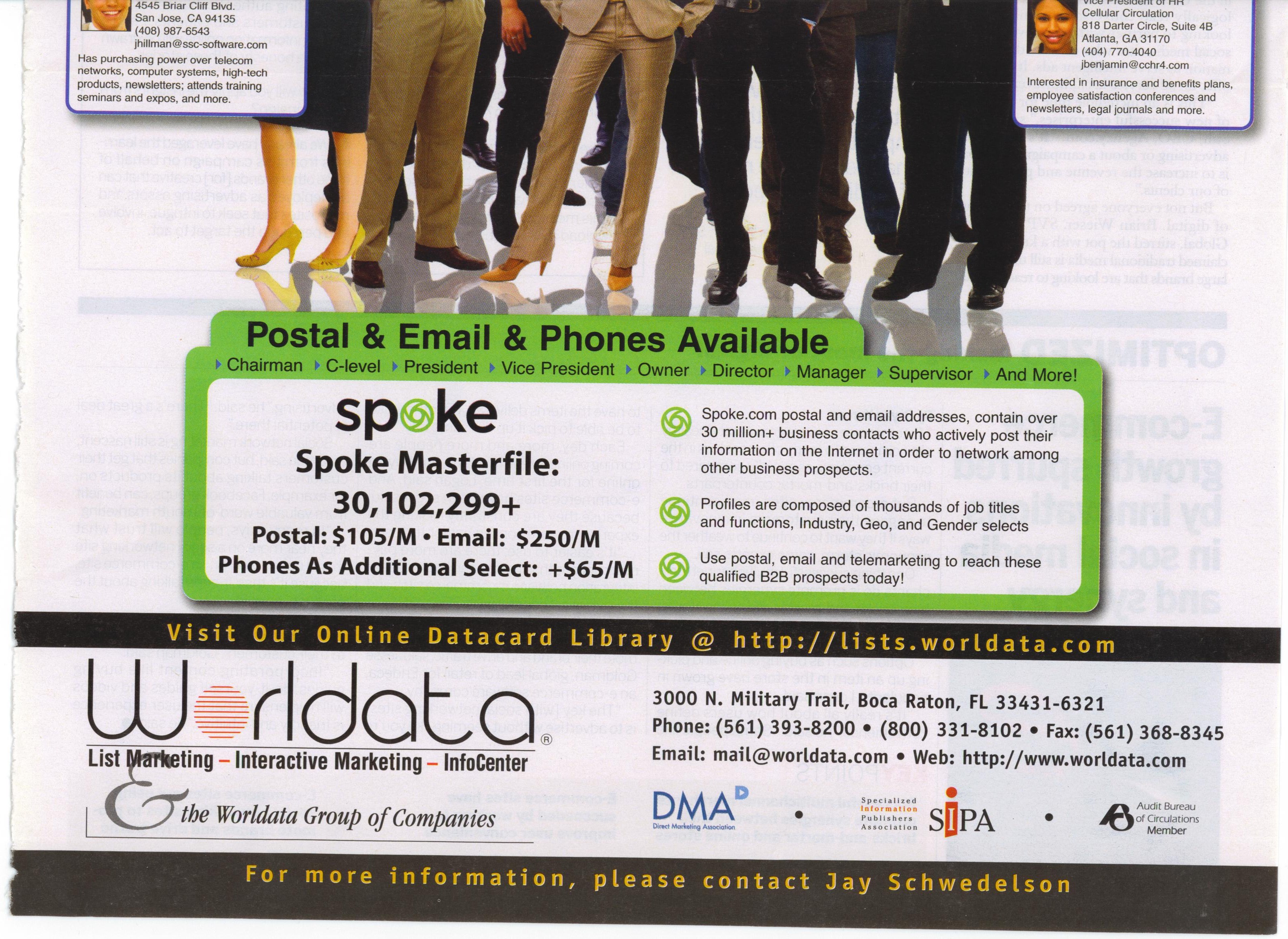Social networks - Selling you out?

I feel so used and so cheap
Profits and revenues are good things especially when the buyers, sellers and others involved in the transaction are all in agreement with the deal. But the explosion of social networks in recent years leaves me feeling used, cheap and pimped out. Do you feel these groups have parked you at some bad intersection and are using you to generate cash for themselves? I do.
When a new Internet technology explodes on the scene and it’s missing a key component to its business survival (e.g., a business/revenue model), then users should be really careful. Some day the founders will run out of startup funds and generosity. At that point, someone’s going to make them become a real, profitable business and businesses need revenue. It’s an old-fashioned idea but it’s still the foundation principle of commerce.
So, let’s see who’s pimping who.
Are you one of the 30+ million people with a Spoke account? (see attached graphics)
Did you know these folks are selling your profile data? Did you ask them to? Do you mind? I do. Sure, I didn’t pay for my Spoke account but I wish I had advance knowledge of their desire to sell my data. If I did, I would have cancelled that account. I don’t suppose they’ll share these mailing list sales revenues with me; after all, it is my information!
Do you Twitter? Here’s a networking tool from a firm that’s still trying to figure out how it will monetize its assets (i.e., you people who Twitter, the people/eyeballs who read your messages and the messages you send). Twitter just recently closed a $35 million venture round and you can bet the new, additional investors will be expecting the company to sell you out. There is even some speculation about context-sensitive ads appearing with those short little messages going to and fro this network.
In an article in the Financial Times, here’s this recent quote:
“We are now positioned extremely well to support the accelerating growth of our service, further enable the robust ecosystem sprouting up around Twitter, and yes, to begin building revenue-generating products,” said Mr Stone.
Are you one of the over 150 million people with a Facebook account? I was surprised at the reaction Facebook’s recent decision to own your information and how quickly the protest caused Facebook to reverse that decision. No one, and I mean no one, should have been surprised by this move. Social networks believe they own the information on their network. In their mind, it’s their asset running on their network. If you park data on their environment, then they will use it to their own advantage. Here’s CNN’s take on this latest brouhaha.
Facebook, the Web's most popular social networking site, has been caught in a content-rights battle after revealing earlier this month that it was granting itself permanent rights to users' photos, wall posts and other information even after a user closed an account.
In response, Chris Walters wrote in the Consumerist post, "Make sure you never upload anything you don't feel comfortable giving away forever, because it's Facebook's now."
So what should we learn from all of this? Several points come to mind:
1) If a web service or application is free to use, it usually isn’t truly free. Like the old adage “You don’t get something for nothing”, free Internet applications often come with conditions. Free products or applications may contain Trojan horses, viruses or spam. Certainly, open source products are a notable exception here. But when it comes to profit oriented enterprises, money is somehow a part of their modus operandi.
2) Generosity has its limits. Providers of free networks can only afford to keep these networks free for a limited amount of time. If you know this going into the deal, be prepared to pay some day or to move off this network.
3) You can only ‘own’ or ‘protect’ your data and other proprietary information on your own network. If you don’t want your information sold, shared, bent, folded or mutilated, then don’t park it on someone else’s network.
4) Never be surprised when someone else's network changes the rules. Remember, it's their network not yours. So, when they change the rules, that's tough.
5) Always have a plan B. When your favorite social network goes through a change in policy or pricing, you need to be adaptive. Plan for this contingency.
6) Never share too much or say the wrong things. Your words in these environments can live forever. I know I'll wonder if the title of this post is going to haunt me for years to come....

